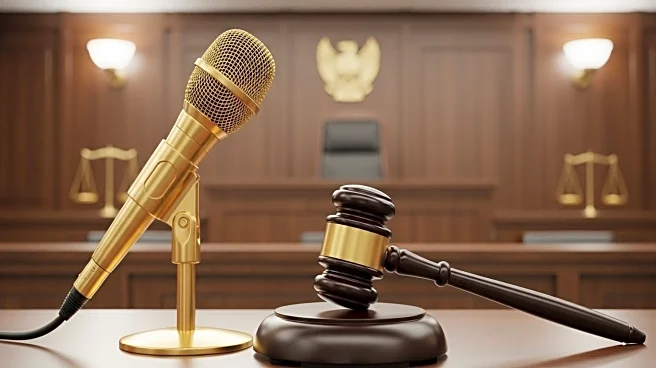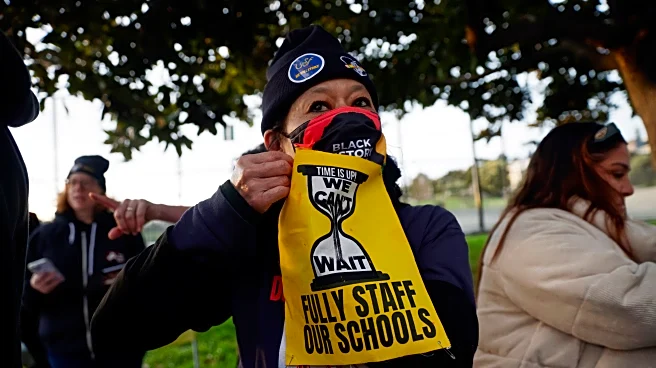What is the story about?
What's Happening?
Drake's defamation lawsuit against Universal Music Group has been dismissed by a judge, who ruled that Kendrick Lamar's lyrics in the track 'Not Like Us' were nonactionable opinions. The lawsuit, filed by Drake in January, accused Universal Music Group of defamation for allowing the song to be published and promoted, claiming it spread a false and malicious narrative. Judge Jeannette Vargas stated that the lyrics, which accused Drake and his associates of being 'certified paedophiles', could not be considered defamatory due to the context of a rap battle. The track, released in May 2024, was seen as a decisive blow in the ongoing rivalry between the two artists.
Why It's Important?
The ruling is significant for the music industry as it reinforces the protection of artistic expression, particularly in the context of rap battles. It highlights the legal challenges artists face when dealing with provocative content in their work. The decision allows Universal Music Group to continue promoting both artists without the burden of legal disputes, potentially influencing how record labels handle similar conflicts in the future. The case also underscores the cultural impact of diss tracks in shaping public perceptions of artists and their reputations.
What's Next?
Drake's spokesperson has announced plans to appeal the ruling, indicating that the legal battle may continue in higher courts. The appeal process could further clarify the boundaries of defamation in artistic works, particularly in the music industry. Universal Music Group has expressed satisfaction with the court's decision and intends to continue its collaboration with Drake, focusing on promoting his music and career. The ongoing legal proceedings may attract attention from other artists and labels, potentially influencing future cases involving artistic expression and defamation.
Beyond the Headlines
The case highlights the cultural significance of rap battles and their role in shaping public perceptions of artists. The legal discourse surrounding this lawsuit may prompt discussions about the ethical implications of using provocative language in music and its impact on artists' reputations. Additionally, the case may influence how artists approach diss tracks, balancing creative expression with potential legal consequences.

















